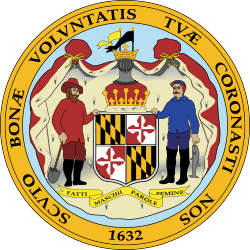November 9, 1807 | |||||||||||||||||||||
| |||||||||||||||||||||
| |||||||||||||||||||||
| Elections in Maryland |
|---|
 |
The 1807 Maryland gubernatorial election was held on November 9, 1807, in order to elect the governor of Maryland. Incumbent Democratic-Republican governor Robert Wright was re-elected by the Maryland General Assembly against Federalist candidates former United States senator Charles Carroll and former governor John Eager Howard in a near rematch of the previous election. [1]


